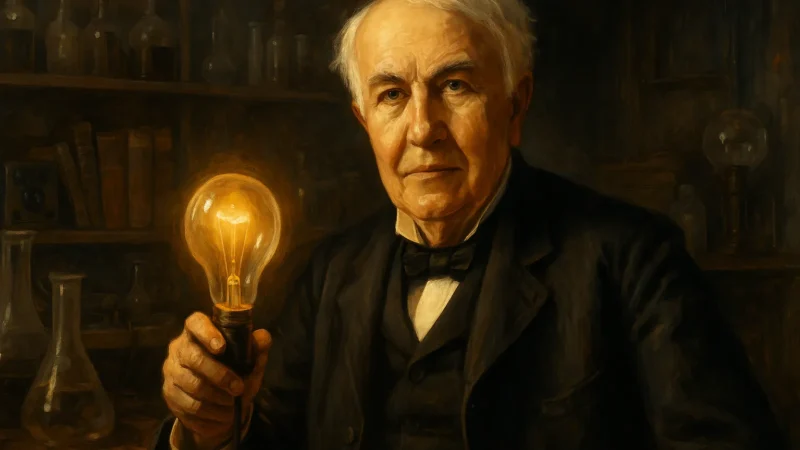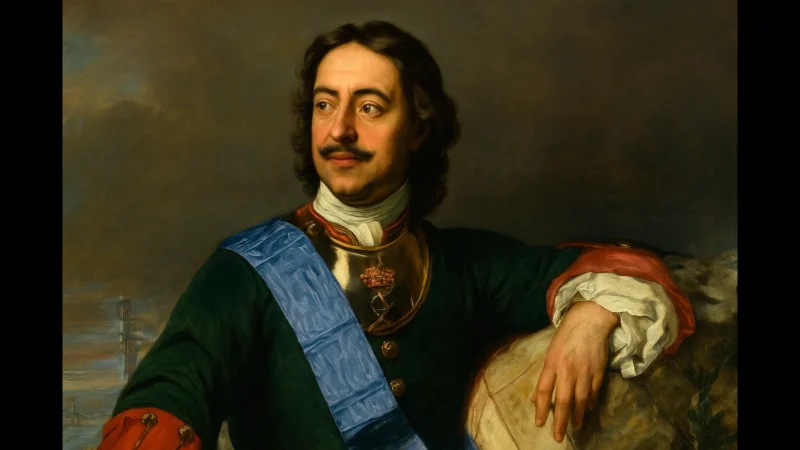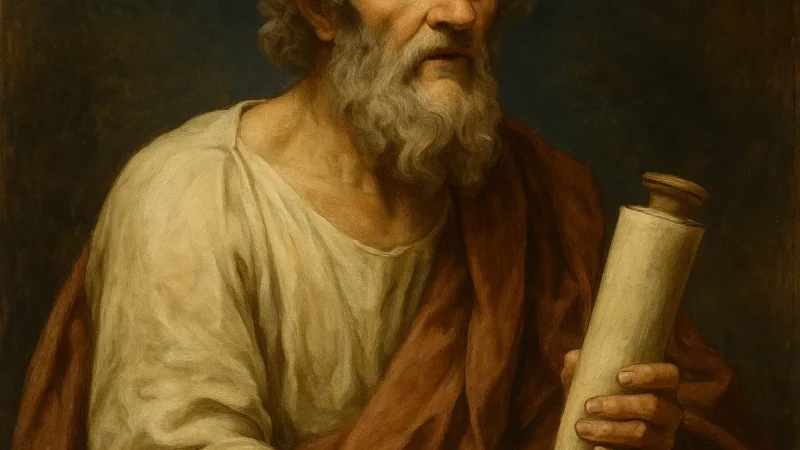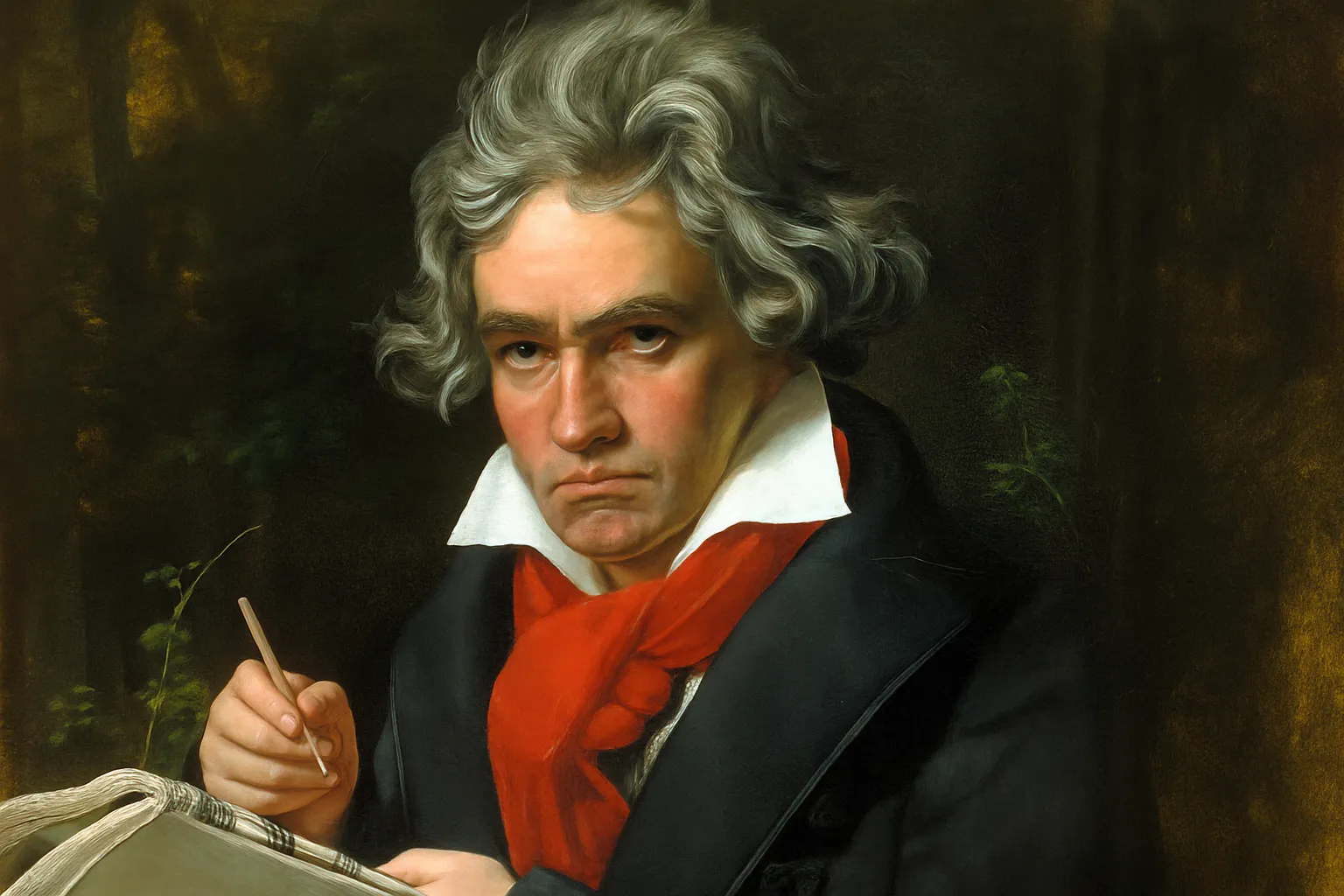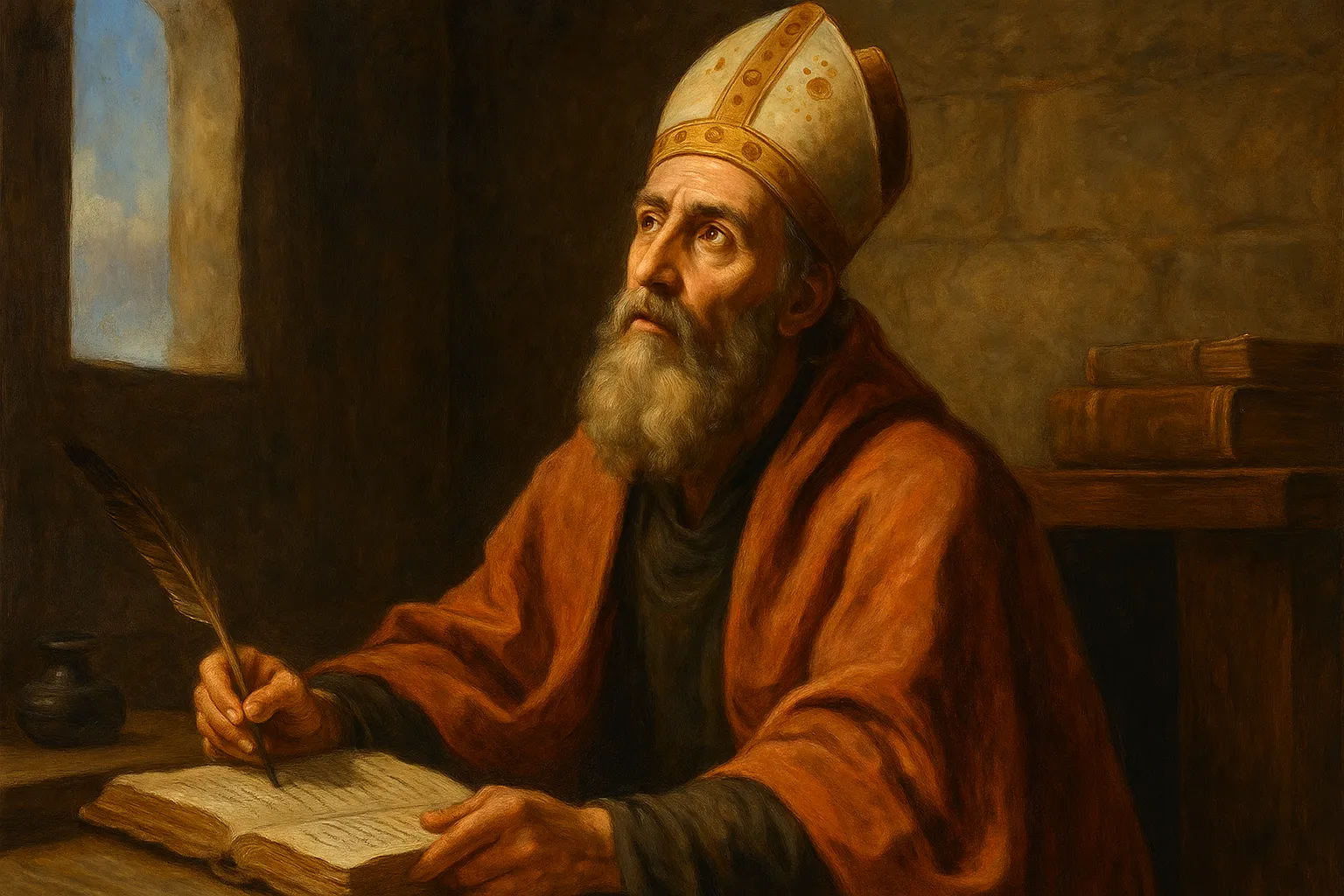Biography of John Calvin: The Architect of the Protestant Reformation
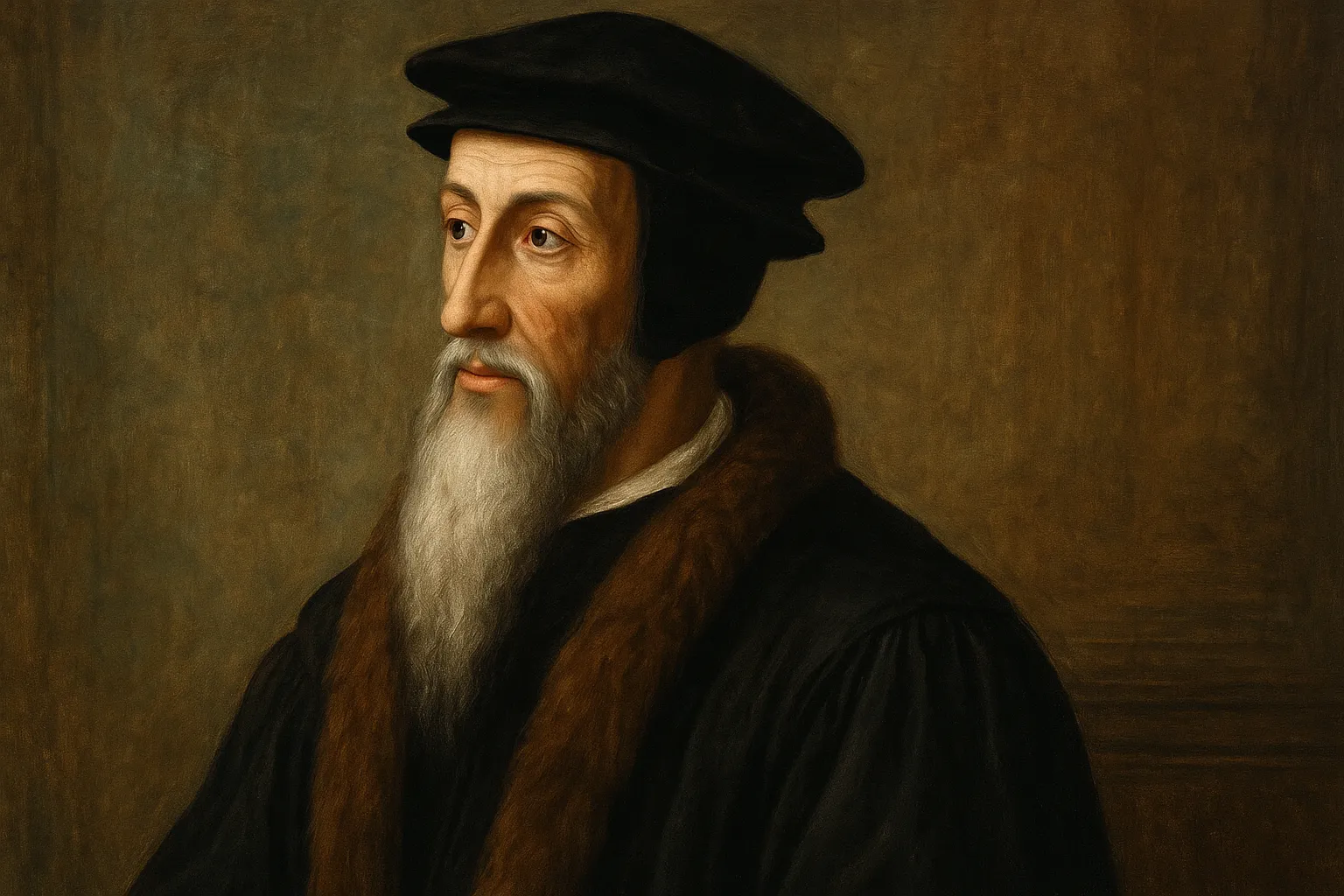
John Calvin (1509–1564) stands among the leading Protestant reformers, alongside figures such as Martin Luther and Ulrich Zwingli. His theological thought, church organization, and political influence left an indelible mark on the history of Western Christianity and the development of European modernity. This biography explores his life, work, theological impact, and complex legacy.
Origins and Early Life
Born in Catholic France
John Calvin was born on July 10, 1509, in Noyon, Picardy, France, into a well-off bourgeois family. His father, Gérard Cauvin, was a lawyer and ecclesiastical administrator, which enabled John to receive early ecclesiastical benefices and access to an excellent education.
Although raised within Roman Catholicism, the religious debates beginning to shake Europe would soon profoundly influence his thinking.
Intellectual Formation
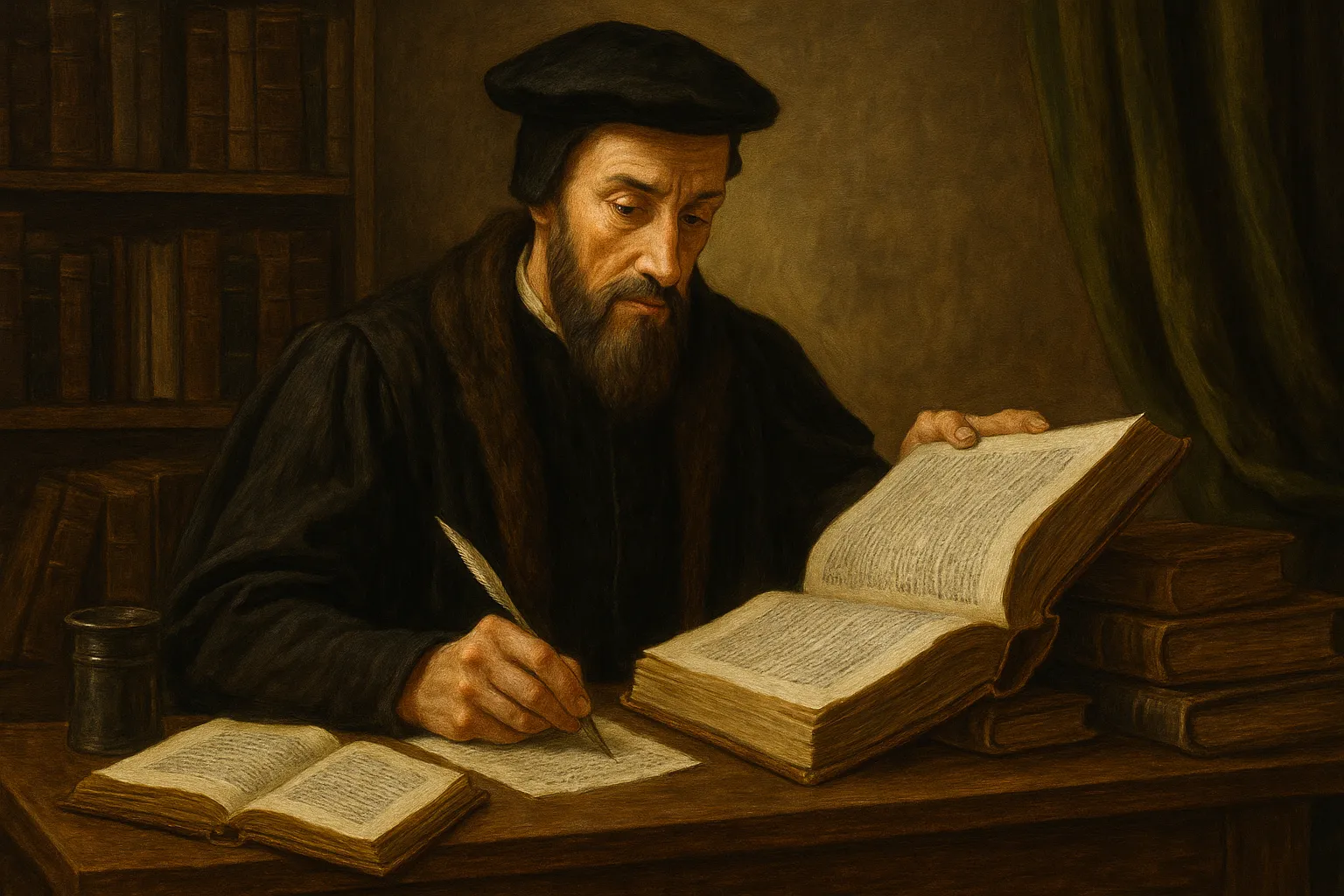
Humanist and Legal Studies
Calvin began his university studies in Paris, initially focused on theology. However, at his father’s insistence, he shifted to study law at the universities of Orléans and Bourges.
During these years, he absorbed Renaissance humanism, mastering Latin, Greek, and Hebrew, and engaging with the writings of the Church Fathers and emerging reformers.
These influences gradually led him to adopt critical views against Roman Catholic doctrines and practices.
Conversion to Protestantism
Break with Rome
The exact moment of Calvin’s conversion is unclear, but by 1533, he had embraced Reformation ideas and distanced himself from the Catholic Church. He participated in religious debates in Paris and authored critical writings that placed him under suspicion.
Facing persecution, Calvin fled France, embarking on years of exile, eventually settling in Basel, Switzerland, a stronghold of Reformed Protestantism influenced by Zwingli.
Publication of “Institutes of the Christian Religion”
His Foundational Theological Work
In 1536, while in exile in Basel, Calvin published the first edition of his masterpiece: “Institutes of the Christian Religion” (Institutio Christianae Religionis). Written in Latin, the work systematized Reformed doctrine into a clear, organized compendium of Protestant beliefs.
Unlike Luther, whose writings were more polemical and pastoral, Calvin offered a systematic theology addressing topics such as God’s sovereignty, predestination, grace, justification by faith, and Christian living.
Arrival in Geneva
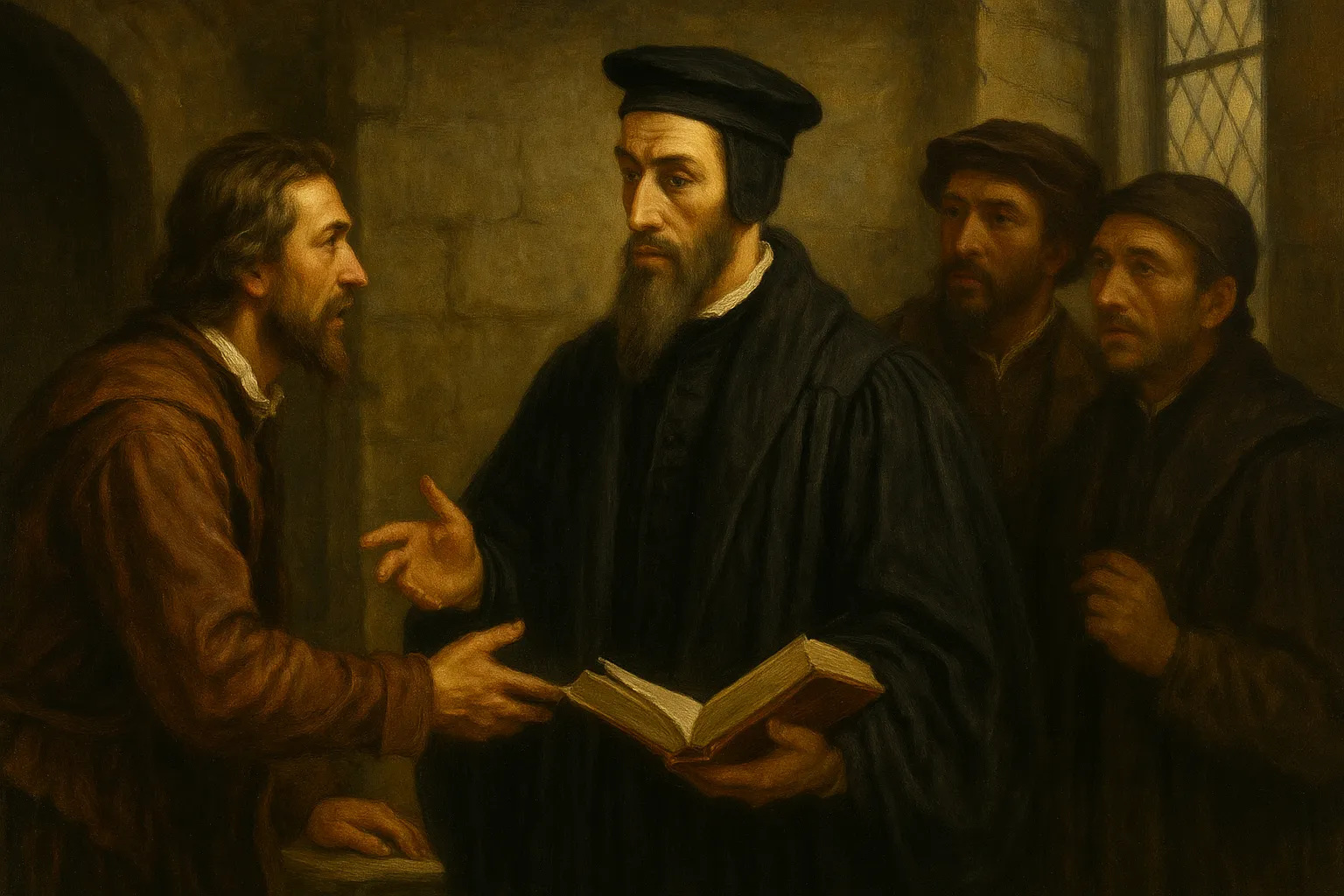
The Beginning of His Reform Work
In 1536, while traveling toward Strasbourg, Calvin passed through Geneva, where the local reformer Guillaume Farel persuaded him to remain and aid in the city’s religious reform.
Calvin quickly set about reorganizing Geneva’s church, implementing strict moral and doctrinal discipline, which faced resistance from certain segments of the population.
Temporary Exile from Geneva
Conflict and Return
Tensions with Geneva’s city council led to Calvin’s expulsion in 1538. He relocated to Strasbourg, where he pastored a congregation of French refugees and further developed his ecclesiastical vision.
In Strasbourg, Calvin refined his church governance model, engaged in theological debates, and forged strong ties with other reformers such as Martin Bucer.
In 1541, facing internal crises, Geneva invited Calvin to return and resume spiritual leadership.
Consolidation of Reform in Geneva
Theocratic Government and Ecclesiastical Discipline
Upon his return, Calvin established a church system characterized by:
- Supreme authority of God’s Word.
- Church independence from the state, though closely collaborating.
- Creation of the Consistory, a body overseeing moral and doctrinal discipline.
- Strict public and private behavioral standards.
Geneva became a model Reformed city, attracting Protestant exiles from across Europe and serving as a center for training pastors and missionaries.
The Michael Servetus Controversy
Limited Tolerance in the 16th Century
In 1553, Spanish physician and theologian Michael Servetus, who denied the Trinity, was arrested in Geneva after attending a service. Tried for heresy, he was burned at the stake.
Although civil authorities led the trial, the case has often been cited to criticize Calvin’s role and Geneva’s religious intolerance.
This incident highlights the limits of tolerance even among 16th-century Reformation leaders.
The Expansion of Calvinism
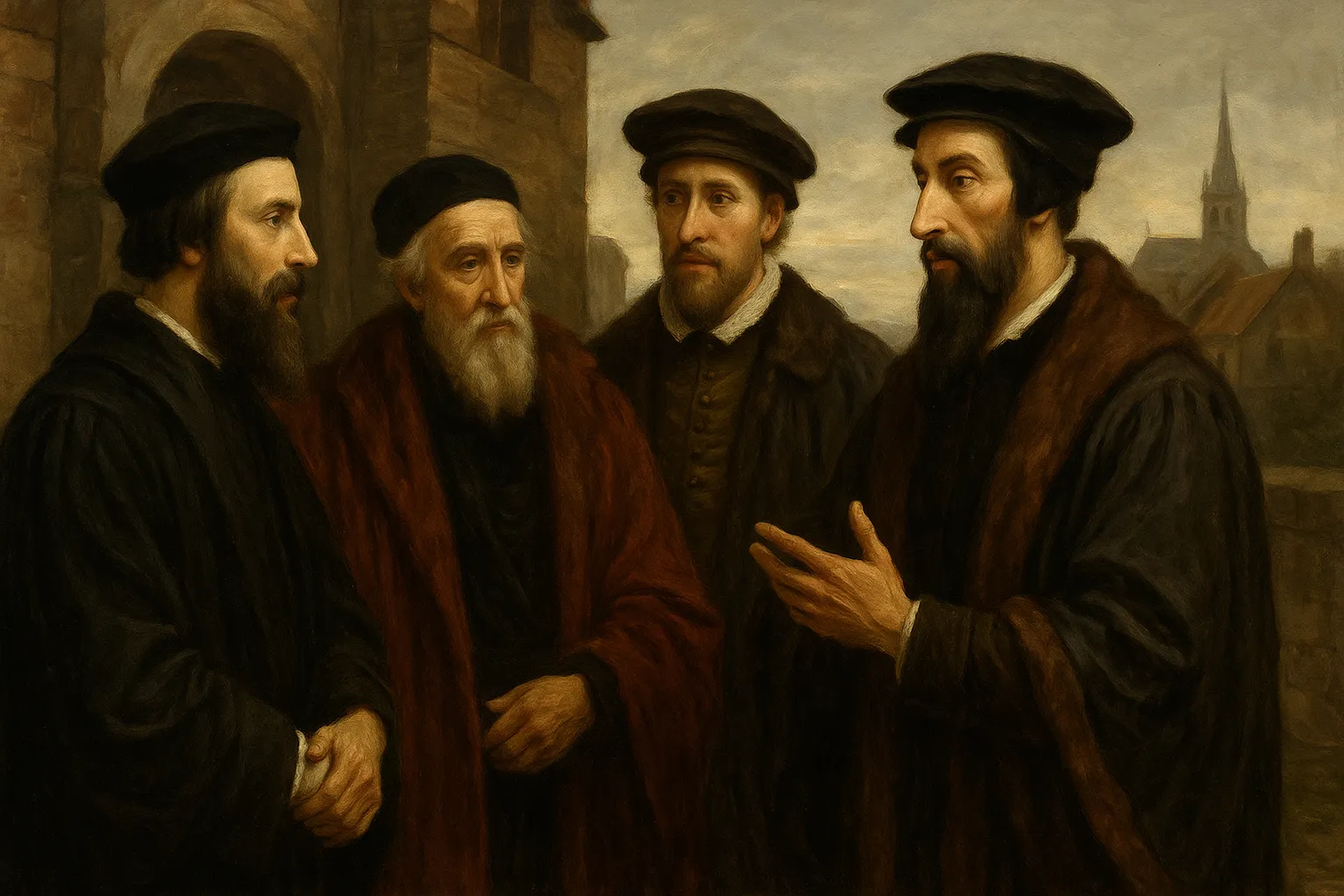
International Influence
Calvin’s thought rapidly spread beyond Geneva, strongly influencing:
- France: where his followers became known as Huguenots.
- Scotland: significantly shaping John Knox’s work.
- The Netherlands: fueling Reformed movements in Northern Europe.
- England and Puritanism: inspiring movements central to later American colonial history.
His emphasis on God’s sovereignty, disciplined moral life, and personal responsibility profoundly shaped Protestant culture.
Final Years and Death
Legacy of a Tireless Reformer
Despite health problems, Calvin continued preaching, teaching, and writing until his death. He produced biblical commentaries, pastoral letters, and successive editions of his Institutes, culminating in the definitive 1559 edition.
He died on May 27, 1564, in Geneva. Per his wishes, he was buried anonymously to prevent any form of veneration.
Critical Evaluation of His Legacy
Systematic Theologian and Strict Reformer
John Calvin remains a figure of both admiration and criticism:
- Praised for his doctrinal coherence and church organization.
- Criticized for his moral rigidity and involvement in religious intolerance.
- Recognized as one of the architects of modern Protestantism.
His thought continues to influence not only religious life but also political culture, work ethics, and economic development in Protestant societies.
The Impact of Calvinism
Legacy Beyond Theology
Calvin’s ideas had far-reaching effects beyond religion:
- Reformed republics emphasizing ethical governance and local self-rule.
- Protestant work ethic, later analyzed by Max Weber in relation to capitalism.
- Universal education promoted by Reformed communities.
- Defense of local church sovereignty against absolute monarchies.
His model of discipline and order helped shape modern societies with strong civic responsibility and individual accountability.
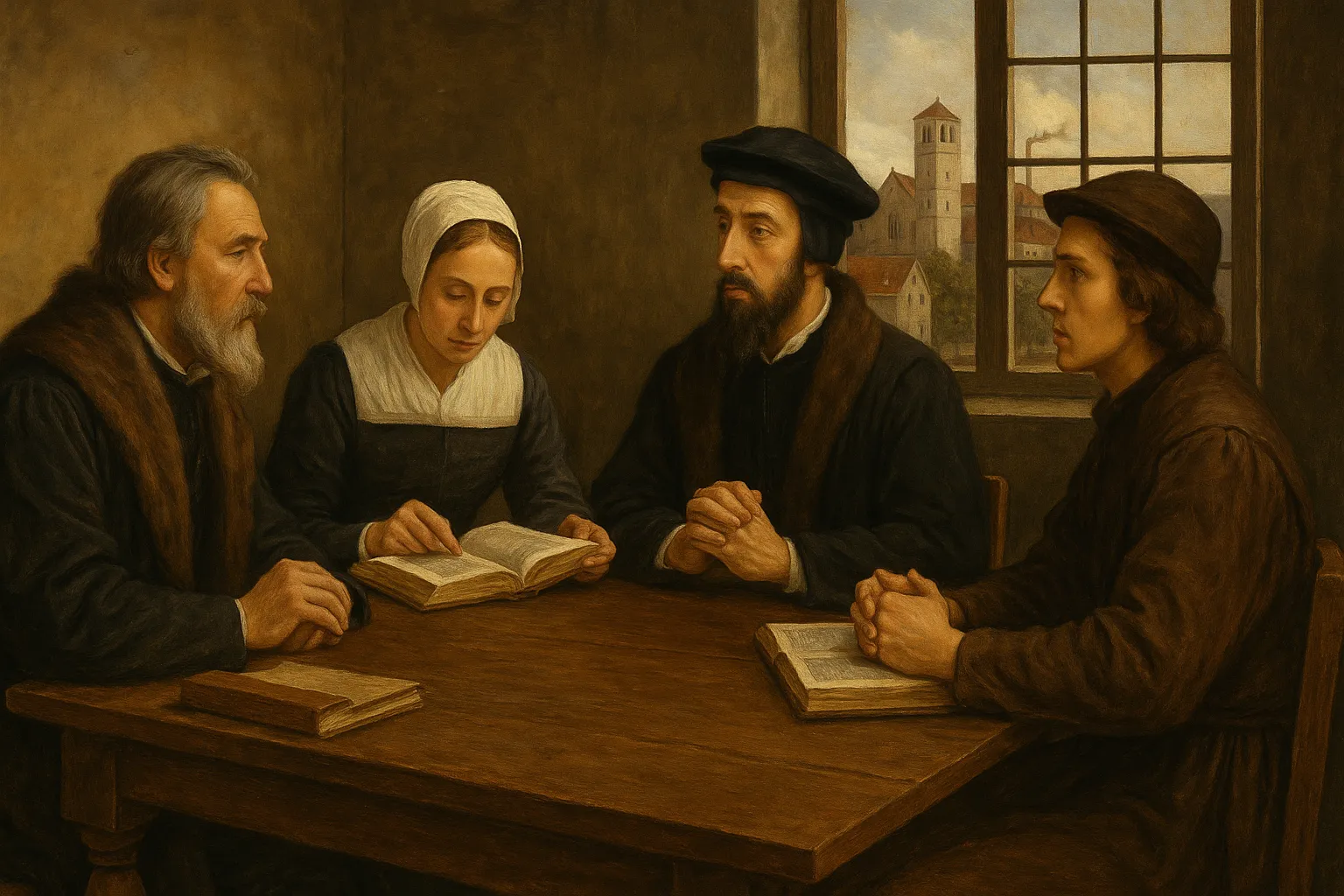
The life of John Calvin reflects the tensions, hopes, and contradictions of the Protestant Reformation. A brilliant theologian, tireless organizer, and charismatic leader, he transformed Geneva into the epicenter of a movement that profoundly shaped Europe and the world.
His emphasis on God’s absolute sovereignty, predestination, Scriptural centrality, and moral discipline continues to inspire admiration and debate.
Calvin was not merely a theologian; he helped forge cultural, political, and economic structures whose legacy endures to this day.

